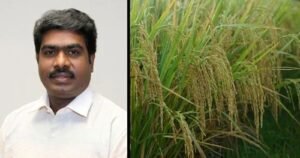Thursday, 5 March 2026
Australia invests $2.2 M to develop alternative proteins sector
An increase of 25 percent in plant and animal proteins required by 2050: UN An Alternative Protein Application Centre (APAC) has been granted $2.2 million to develop technology that supports…

An increase of 25 percent in plant and animal proteins required by 2050: UN
An Alternative Protein Application Centre (APAC) has been granted $2.2 million to develop technology that supports a growing alternative proteins manufacturing and processing industry.
According to the United Nations, an increase of 25 percent in plant and animal proteins will be required by 2050, representing an opportunity for Australia’s agriculture and city-based food manufacturing sectors to supply domestic and global markets with high quality alternate proteins.
The Centre will be located within Tech Central at South Eveleigh and, led by the University of Sydney in Australia, will develop scalable designs and large-volume manufacturing. The Centre will also conduct research and development on alternative protein production methods, including cellular engineering, precision fermentation, vertical farming, extraction and texturisation, all while training researchers and practitioners in the food and beverage industry.
Co-lead of APAC, Professor Fariba Dehghani is an expert in food engineering from the School of Chemical and Biomolecular Engineering and Sydney Nano. “It will further boost our capability for collaboration with the food industry. It will also support our existing research collaboration with multiple industry partners for the development of alternative protein sources for manufacturing innovative and nutritional food products from Australian plants and other sources of protein”, said Professor Fariba Dehghani.
Professor Brent Kaiser, co-lead of the Centre from the Sydney Institute of Agriculture in the Faculty of Science, said: “APAC will help food companies develop alternate protein foods using a range of protein inputs. These include plant proteins (pulses, cereals, oilseeds, hemp seed), fungal proteins (mushrooms) and more novel approaches through fermentation of fungi using plant sugars and animal-based cell culture approaches.”
Image credit- shutterstock
Technology
Copeland Launches ZF/ZFI 10-20HP Scroll Compressors
Mar 05, 2026 | Company News
WA Scientists Discover New Deep-Sea Crustacean Stocks with Strong Commercial Potential
Mar 05, 2026 | Australia
Food Testing
NSF and Circle H Collaborate to Enable Global Certification Access
Mar 04, 2026 | Company News
Australian Medical Bodies Push for Compulsory Health Star Labelling
Feb 24, 2026 | Australia
Tim Hortons Singapore Secures Majlis Ugama Islam Singapura Halal Certification Ahead of Ramadan
Feb 23, 2026 | Company News
More Popular
Copeland Launches ZF/ZFI 10-20HP Scroll Compressors
Mar 05, 2026 | Company News
Singapore Expands Support for Local Farms to Strengthen Food Security
Mar 05, 2026 | Food Security






